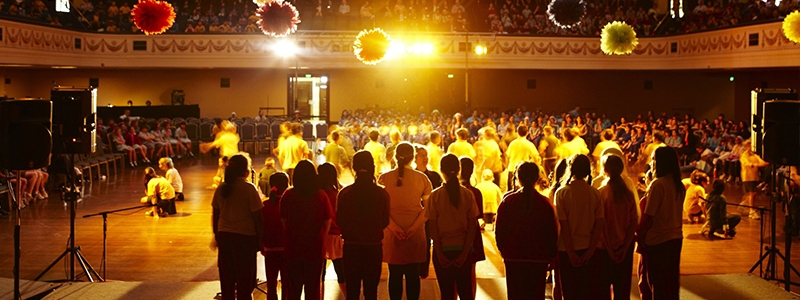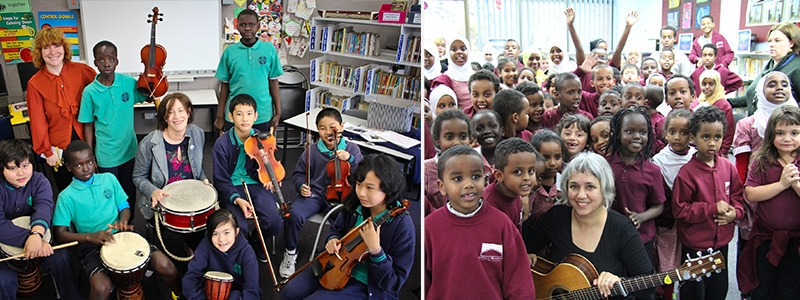Problem: Australia's educational ranking has fallen over the last decade in relation to its OECD (Organization for Economic Co-operation and Development) counterparts. The current situation reflects the discrepancy between the academic results of the country's rich and poor students. The children of low-income families begin school at a disadvantage - they are left behind during the course of their learning and are less apt to complete the 13 years of basic education. By the age of 15, these students are below the OECD average and almost three years behind students from wealthy backgrounds. Created in 1999, this project infuses schools with high quality art and music classes. The aim is to improve the education that the children receive, encourage their personal development and further their involvement with the community.

Solutions: The program begins by engaging with the region's academic community to set out guidelines in order to adapt its lessons to local needs. Next, an art professor begins to direct weekly workshops with students between the ages of five and 12, during a period of time that ranges from six to 18 months. During these classes, the subject matter of which can vary depending on the background of the teacher, the children can explore their talents and abilities. There are dance, theater, visual arts and singing lessons, as well as music lessons with string and percussion instruments. Furthermore, the learning environment is interactive, collaborative and fun.
Song Room professionals work in tandem with the schools’ professors so that they can continue to give art lessons after the program's completion. These workshops benefit more than 15 thousand children on a weekly basis.
Another program, known as Early Learning, works with children up to five years old accompanied by their parents. The classes incorporate music and games to discourage absenteeism and promote the learning process.
The organization also created an online lesson program known as ARTS:LIVE, through which teachers from the whole country can access pedagogical resources in order to teach the arts in a creative manner.
 The Song Room
The Song Room
Outcomes: The project develops the childrens' abilities in every aspect of academic life. Their participation in workshops over the period of six months, according to an assessment that was completed by the organization, improved test results in reading, mathematics and science. Absenteeism in children that displayed low levels of social and emotional well-being was reduced by 65%. Students became more confident, less solitary, interacted more with their classmates and engaged more in school. They also learned to express their emotions and opinions more positively, especially those students that were previously thought to be disinterested. Children from indigenous backgrounds that reached the age of 15 two years behind other students in terms of their reading ability, achieved nearly the same academic results as their counterparts after having participated in the project. After two years of release, the ARTS:LIVE platform is now being used by over 10,000 teachers in over 60% of Australian schools. The project was one of the winners of the Wise Awards competition in 2014.







